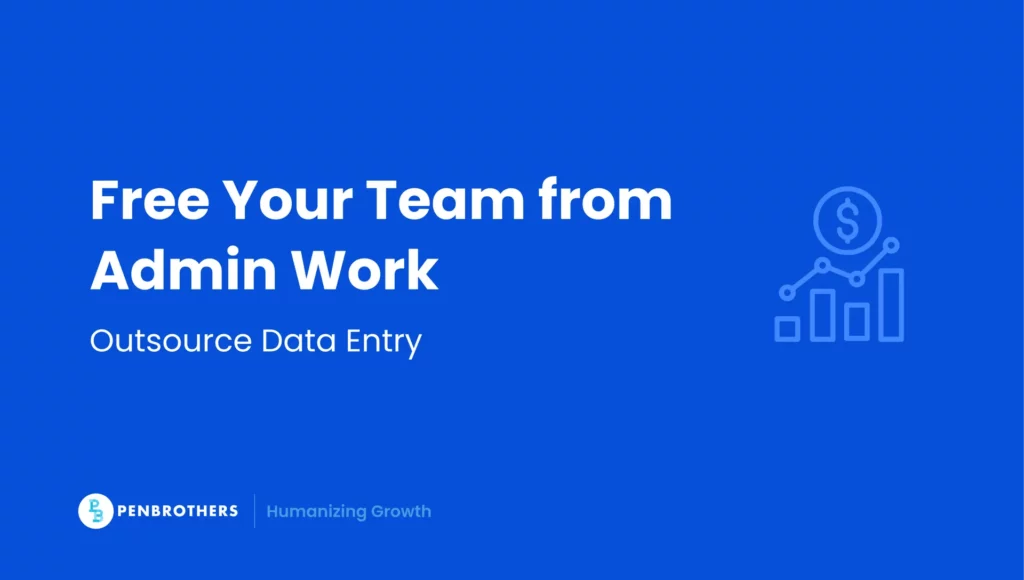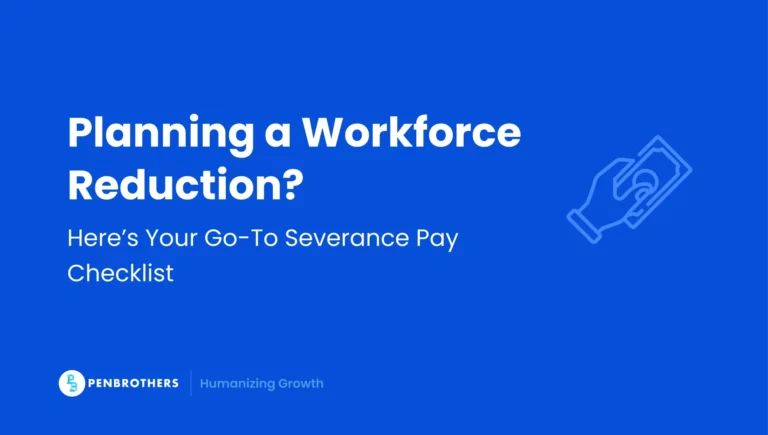Picture this: your SaaS or e-commerce business is growing fast, sales are climbing, customers keep coming, and investors want more. But behind the scenes, teams are drowning in spreadsheets, fixing errors, and chasing invoices instead of driving strategy.
The real bottleneck isn’t opportunity, it’s the burden of repetitive, low-value tasks. That’s where outsourced data entry services step in, freeing capacity so your team can focus on growth, innovation, and customer experience.
What Are Outsourced Data Entry Services, Really?
Outsourced data entry means entrusting a third-party provider with repetitive tasks like inputting customer records into CRMs, digitizing invoices, or updating catalogs.
There are two models:
- Onshore outsourcing: Providers in your country, offering cultural alignment and regulatory familiarity.
- Offshore outsourcing: Partners overseas, such as in the Philippines or India, known for cost efficiency and 24/7 support.
In practice, outsourcing is less about clerical support and more about operational enablement. It’s part of the same shift driving businesses to adopt non-voice work from home jobs and flexible remote work models to scale without adding overhead.
Why Scaling Businesses Turn to Data Entry Outsourcing
Companies make the move to outsourcing once inefficiencies start costing real money.
Cost efficiency
According to Deloitte’s Global Outsourcing Survey, organizations report savings of up to 70–90% by outsourcing functions like data entry compared to building and maintaining full in-house teams. For scaling businesses under budget pressure, this isn’t just a cost cut, it’s a way to reallocate funds toward growth initiatives such as product development or customer acquisition.
Accuracy and compliance
Offshore teams are trained to work under strict frameworks such as HIPAA for healthcare data, GDPR for European customers, and ISO certifications for information security. A 2024 report by Everest Group noted that compliance-driven outsourcing agreements are growing, as businesses seek partners who can guarantee both accuracy and regulatory alignment (Everest Group Outsourcing Research).
Speed and scalability
Workloads in scaling companies are rarely static. Seasonal spikes in e-commerce, funding-driven user growth in SaaS, or increased reporting requirements in finance can overwhelm small teams. Outsourcing providers offer flexibility, teams can be scaled up or down without the delays and costs of hiring or layoffs. The global Business Process Outsourcing (BPO) market, for example, is forecast to grow at about 9.8% CAGR through 2030 as companies demand more adaptable support.
Core focus
Perhaps the most overlooked benefit: outsourcing frees leaders and skilled employees from being stuck in the weeds of repetitive admin work. PwC’s 2025 CEO Survey highlights that 77% of CEOs are prioritizing operational efficiency and digital transformation to stay competitive (PwC 2025 CEO Survey). By delegating data entry, executives and teams redirect energy toward innovation, customer experience, and long-term strategy.
The Many Faces of Data Entry: What Can Be Outsourced
Data entry spans multiple business-critical functions:
Data cleansing & validation
Inaccurate data leads to wasted marketing spend, poor customer service, and flawed decision-making. Cleansing ensures duplicate records are removed, contact information is up to date, and errors are corrected. This directly improves CRM accuracy and boosts campaign ROI.
Data conversion & digitization
Businesses still receive paper invoices, handwritten forms, or legacy documents. Converting these into digital, searchable formats not only saves physical storage costs but also makes information accessible across cloud-based systems, improving collaboration and audit readiness.
Catalog & product data entry
For e-commerce companies, the ability to upload thousands of SKUs with accurate descriptions, images, and pricing can make or break growth. Outsourced teams help maintain product catalogs at scale, ensuring consistency across marketplaces and customer touchpoints.
Medical & financial data entry
Healthcare providers, insurance firms, and financial institutions handle sensitive records that require 100% accuracy and strict compliance with HIPAA, GDPR, or industry-specific standards. Outsourced specialists trained in regulatory handling reduce the risk of costly compliance breaches.
Survey & research data entry
From employee engagement surveys to customer satisfaction polls, raw responses are useless until they’re structured and analyzed. Outsourcing this process ensures feedback is quickly transformed into insights for HR, product, or marketing teams.
These activities seem minor but become “hidden time drains” that slow scaling companies down. It’s the same principle behind easy remote jobs, delegating straightforward tasks creates room for higher-value work.
Key Considerations Before You Outsource
Not every provider is equal. To choose wisely, leaders should evaluate:
1. Cost-benefit Analysis
Outsourcing should not only be cheaper but also deliver measurable ROI. Compare the total cost of in-house hiring including salaries, benefits, training, and turnover risk against outsourcing fees. Many businesses find the breakeven point much earlier than expected when they calculate hidden costs of managing in-house teams.
2. Security Protocols
Since data is a company’s most valuable asset, ask how providers safeguard it. Look for strong encryption standards, multi-factor authentication, and compliance with regulations such as HIPAA (for healthcare data) or GDPR (for European customers). Regular security audits and transparent incident response processes are non-negotiables.
3. Turnaround Time
Speed is often the reason companies outsource. Ensure that service-level agreements (SLAs) specify expected turnaround times and accuracy thresholds. A good provider will not only meet deadlines but also adjust quickly to spikes in workload without compromising quality.
4. Reputation and track record
Don’t just take a provider’s word for it. Review case studies, client testimonials, and independent ratings to validate their credibility. Ask for references within your industry or of similar company size to ensure they understand your unique challenges.
5. Technology fit
Providers using modern tools such as AI-driven validation, Optical Character Recognition (OCR), and cloud-based platforms will consistently outperform manual-only setups. Technology integration also matters: ensure the outsourced team can connect seamlessly with your CRM, ERP, or other business systems.
Common Misconceptions About Outsourcing Data Entry
Hesitations often stem from outdated assumptions:
- “It’s only for big corporations.”
Reality: SMEs are increasingly turning to outsourcing to manage non-core operations. The global Business Process Outsourcing (BPO) market is projected to expand at a CAGR of 9.8% from 2025 to 2030, from USD 302.6 billion to USD 525.2 billion. - “Data won’t be secure.”
Fact: Providers invest heavily in compliance frameworks, NDAs, and audit trails. - “Outsourcing equals loss of control.”
Not true. With dashboards and SLAs, leaders maintain visibility over workflows and results.
In fact, the success of outsourcing is tied to data-driven decisions, clean, reliable data makes higher-value roles like analysts or administrators more impactful.
How to Successfully Manage an Outsourced Data Entry Team
The best outsourcing setups are managed as partnerships, not transactions. Best practices include:
Fintech example
A mid-sized fintech struggling with backlogs in client onboarding outsourced its CRM data entry. The result was a 60% reduction in overhead costs and a significant boost in accuracy rates. More importantly, the company was able to reassign its internal team to focus on product innovation, rolling out new features months ahead of schedule. Outsourcing didn’t just save money, it directly fueled growth.
- Logistics example
Fintech example
A global logistics firm faced massive volumes of shipping forms and customs documents. By outsourcing, the company processed 30,000+ forms weekly at 98% accuracy, cutting compliance risks and avoiding costly shipment delays. The speed and reliability gained from outsourcing translated directly into stronger customer satisfaction and repeat business.
The bigger picture
These cases highlight a critical insight: outsourcing is a force multiplier. It gives scaling companies the agility to handle demand spikes, the accuracy to support better analytics, and the freedom to channel resources into strategy rather than administration. In fact, Everest Group’s outsourcing benchmarks show that organizations leveraging outsourcing for process improvement report 20–30% faster decision-making cycles (Everest Group).
Strong management practices for data entry also apply when building reliable offshore teams in higher-value roles like data administrators or engineers.
Is Outsourced Data Entry Right for Your Scaling Business?
Outsourcing is often the smarter move if:
- Data volumes are overwhelming your in-house team. When employees spend more time fixing spreadsheets than driving strategy, it’s a clear signal that outsourcing can restore balance.
- Accuracy and compliance are mission-critical. Industries like healthcare, finance, and logistics can’t afford errors. Outsourcing partners trained in HIPAA, GDPR, or ISO standards provide built-in safeguards.
- Internal staff are tied up in low-value admin work. Skilled employees should be driving innovation, sales, or customer experience, not rekeying invoices or updating databases. Outsourcing frees them for higher-value contributions.
But outsourcing may not be necessary if:
- Data volumes are low and predictable. If your business only handles a few hundred records a month, internal staff can likely manage without extra cost.
- Compliance requirements are minimal. Startups dealing with simple, non-sensitive data may not need outsourced specialists, at least not yet.
- Budget comfortably supports in-house specialists. If you can afford dedicated staff without impacting growth investments, in-house data entry may still make sense.
The key question: does data entry consume more time than it contributes to growth? If yes, outsourcing becomes a strategic move.
Final Thoughts
Scaling isn’t only about hiring more people, it’s about building smarter systems. Outsourced data entry services deliver cost savings, compliance assurance, and scalability. More importantly, they serve as a hidden growth lever, giving leaders the headspace to focus on innovation, customers, and competitive strategy.
In today’s global economy, companies that embrace outsourcing gain a critical edge in scaling global operations.
Call to action: If your team is weighed down by repetitive data tasks, now is the time to explore outsourcing partners that combine accuracy, compliance, and flexibility.






